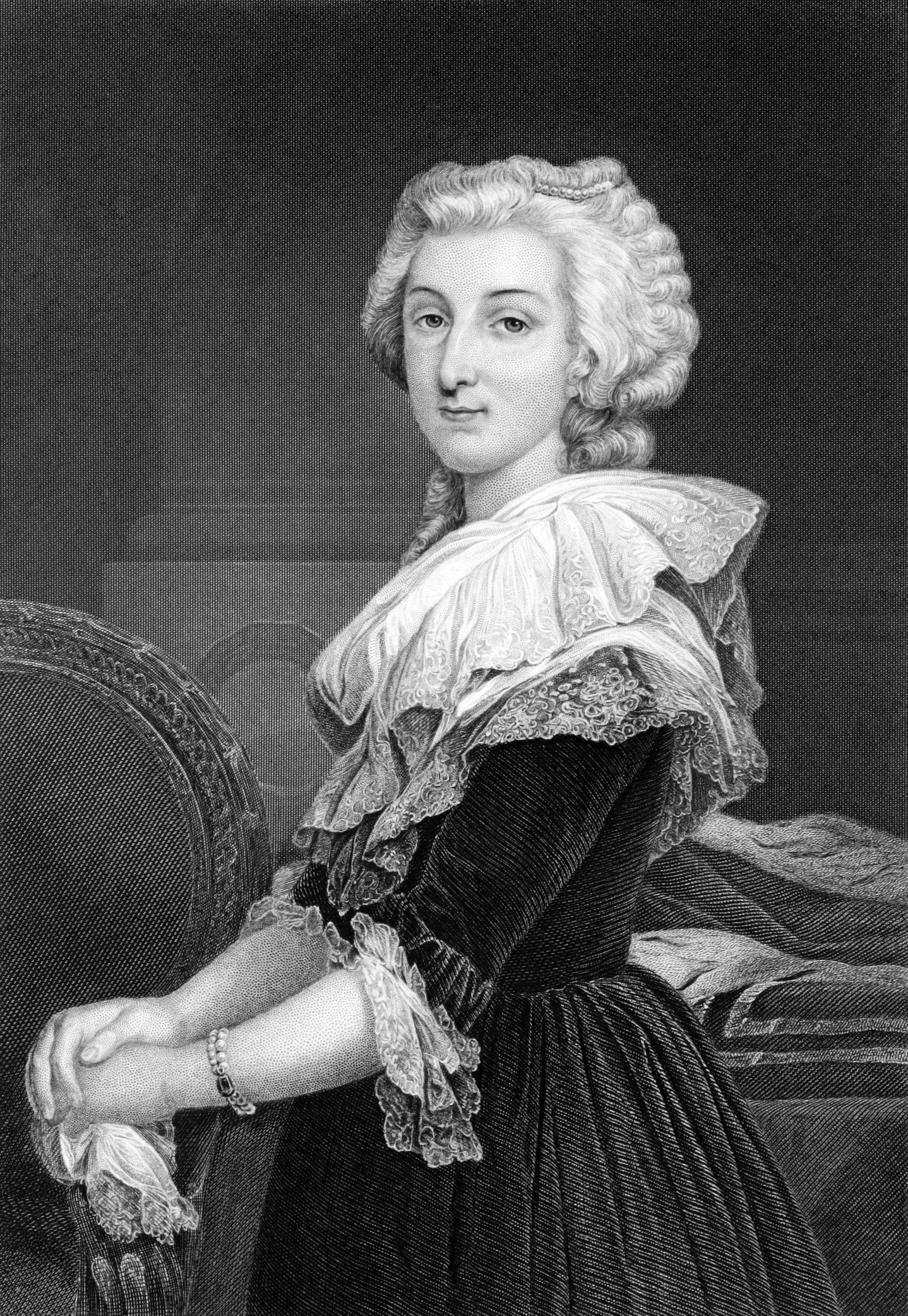The History of France in Seven Women
Posted by Josh on 8th Mar 2023 in the blog in the category
France has a rich, eventful history, with a cast of characters that have become world-famous, from mediaeval monarchs to Enlightenment philosophers. Go anywhere round the world and people will know the names of Louis XIV ('The Sun King'), Descartes, Charles de Gaulle, etc. Indeed, most of French history has been determined by men, and it wasn’t until the 20th century that women began to have more of a say in the country's politics, culture and affairs.
Despite these constrictions, however, certain women have played a decisive role in French history for a long time. Meet some of the most important women who each changed the course of French history in their own way.
Saint Genevieve
Genevieve was born in 412, when France — as we know it today — was a collection of Gaullish states in the western roman empire. She was born in Nanterre but moved to Paris early on in life, where she became noted for her works of charity and religious devotion.
She is credited with defending Paris from attack on two separate occasions, thanks to her courage and piety. When Attila the Hun contemplated invading the city with his army in 451, Genevieve was instrumental in persuading the citizens to pray to God instead of fleeing for safety — a stay of resolve that may have influenced Attila’s decision to move on to Orléans instead.
Just over a decade later, when the army of Childeric I was engaged in invading the city — Paris wasn’t a very fun place to live in the 5th century! — Genevive managed to pass through the battle lines to bring grain to the besieged townsfolk. While the siege was ultimately successful, Genevieve personally appealed to Childeric to be merciful to the people of Paris — sparing them from what might have been a terrible fate.
It was for these actions, and for her virtues, that Genevieve was later canonised.
Joan of Arc
Though she was born in 1412, Joan of Arc — the patron saint of France — continues to be a source of inspiration around the world.
A thousand years after Saint Genevieve, France was no longer part of the Roman Empire. Instead, much of the country was claimed by England, and the two nations were engaged in what has become known as the Hundred Years War (although it lasted, in fact, for 116 years!).
The recipient of divine visions, at age 16 Joan believed she was called upon to lead the French to victory against the English. Whether the visions were legitimate or not, it cannot be doubted that Joan had an influence over France’s fortunes during the war. She convinced King Charles VII to let her take charge of his armies to help him regain his throne. In 1429, she aided the king’s army in achieving victory at Orléans, although shortly afterwards she was captured and burnt at the stake.
It is partly for this grisly death that she is remembered, as a martyr for her country. But she is also revered as one of the earliest examples of a feminist icon, defying the male-oriented world of warfare by leading an army to battle in a time when it was unthinkable for a woman — let alone a girl — to do so. She continues to be depicted in popular media, from Carl Theodor Dreyer's classic film The Passion of Joan of Arc to an appearance in The Simpsons, where her role in the Hundred Years War is replayed by Lisa.
Catherine de Medici
Catherine was one of the most impactful — if not benevolent — figures in French history. She became Queen of France in 1547, and the most powerful figure in the land after the death of her husband, Henry II, in 1559.
You’ve probably heard of the St Bartholomews Day Massacre, but if you haven’t, this is the name given to the massacre of thousands of Huguenots in France in 1572, who were rebelling against the marriage of Catherine's daughter, Margaret of Valois and Henry of Navarre. The marriage was designed to cement peace between the Catholics and Protestants, but its aftermath was anything but peaceful. Catherine is often credited with instigating the violent attacks on the Huguenots.
Catherine's life dovetailed with much of the Reformation, a turbulent time in France and Europe more widely. This was a period when Christians in western Europe divided into two factions — Catholics and Protestants — and Catherine played a role in aligning France with Catholicism and the authority of the Pope.
Marie Antoinette
Born Maria Antonia Josepha Johanna, Marie was married into the French royal family in 1770 at the age of fifteen. This was a time of great social strife within France, with high taxation and widespread poverty, and the extravagant lifestyles of the king and his wife contrasted sharply with the indigence of the country at large.
That isn’t to say that Marie particularly enjoyed her life as queen. Her husband was inattentive and uninterested in her. She was doubly unfortunate to be queen at the time of the French Revolution, when civil unrest threatened the monarchy in a way it never had before.
The revolution was hugely destructive, and while Marie and the king, Louis XVI, managed to flee Versailles when a mob gathered outside the palace in 1791, they were soon captured and executed.
The Revolution was one of — if not the most — pivotal points in French history, and Marie Antoinette was right at the epicentre of it. She has inspired a number of books, films and TV shows, including the recent BBC series and the Sofia Coppola film.
Marie Curie
Did you know that the first female recipient of the Nobel Prize — and the first person to win two of them — was French? Well, half-French...
Her name was Marie Curie, and she lived a couple of centuries after the other Marie on this list. Although she was born and grew up in Poland — her real name was Marie Skłodowska — she studied in Paris and became a French citizen, taking the name she is famous for from the husband she met at university, Pierre Curie. She went on to become the first female professor at the University of Paris, but is most famous for her extensive research into radioactivity, as well as discovering the elements radium and polonium (named after Curie's homeland, Poland).
Coco Chanel
Gabrielle Bonheur ‘Coco’ Chanel was born 1883 in Saumur, in the west of France. She acquired the name ‘Coco’ (short for 'cocotte', meaning a 'kept woman') as a performer in the clubs of Vichy and Moulins in her 20s, but of course it’s as a fashion designer that she’s chiefly known.
In fact, Coco had a vibrant, varied life, and she worked in many different fields. At age 12, after her mother’s death, Chanel was raised by nuns in the commune of Aubazine, where she learned how to sew. In some ways this was what sparked her career in fashion. At age 20, she opened a hat shop, before expanding to selling apparel of all kinds, and quickly became an established name around Paris. Her clothes range was revolutionary, and signalled a shift from the old trends of corsets and tight-fitting garments to more comfortable clothing.
Today, however, Chanel is probably more famous for her perfume legacy than for her clothing. While we’re used to seeing designers’ names attached to their perfumes — Paco Rabanne, Christian Dior, etc. — Chanel was the first to tie her own persona to the brand when she released Chanel No. 5 in 1921, a revolutionary scent which was considered more exciting than the floral perfumes that were popular at the time
Her life coincided with major currents of the early twentieth century. Being a major socialite, she had relationships with Stravinsky and the Duke of Westminster, as well as with the Nazi officer Hans Gunther von Dincklage during the occupation of France, leading to speculation that Chanel may have worked as a Nazi spy.
The Second World War led to her business closing down, but after it ended her business sprung back again. Her name lives on in the brand, in popular media such as the 1969 Broadway Musical Coco, and as an enduring feature of Parisian and French culture.
Simone de Beauvoir
You almost can’t talk about feminism and gender equality without mentioning Simone de Beauvoir. Her book The Second Sex was instrumental in advancing women's rights and promoting discussion, although her memoirs have become classics of French literature in their own right.
Born in 1908, she became a key figure in 20th century literature, winning the Prix Goncourt and the Jerusalem Prize, and going on to inspire feminists like Germaine Greer and Judith Butler. She contributed to French philosophy during one of its most exciting times, rubbing shoulders with figures like Simone Weil, Albert Camus and Jean-Paul Sarte, with whom she had an open relationship.
Check out some of our other blog posts!
Using ChatGPT to Learn French
Posted on by Josh in the categoryEveryone's talking about the new A.I. tool ChatGPT. But just how good is it as a tool for learning French?
Read moreWhere does the Tour de France finish?
Posted on by Josh in the french culture categoryAnd where has it finished in the past?
Read moreHave fun learning French Today
People from all over the world enjoy learning French with Alexa Polidoro’s popular French audio and video lessons.





